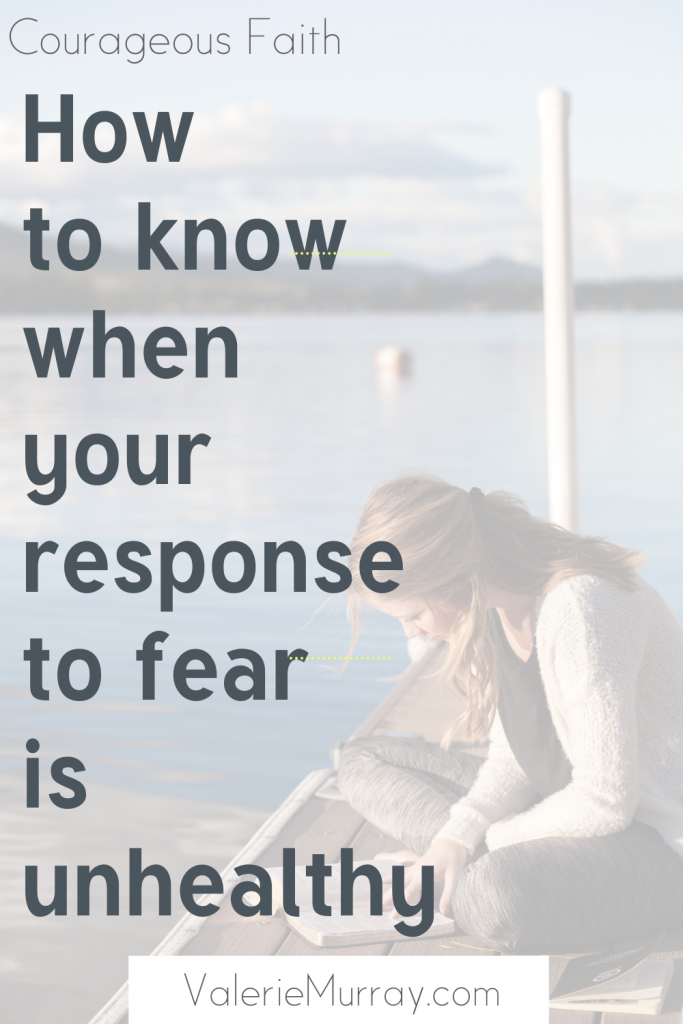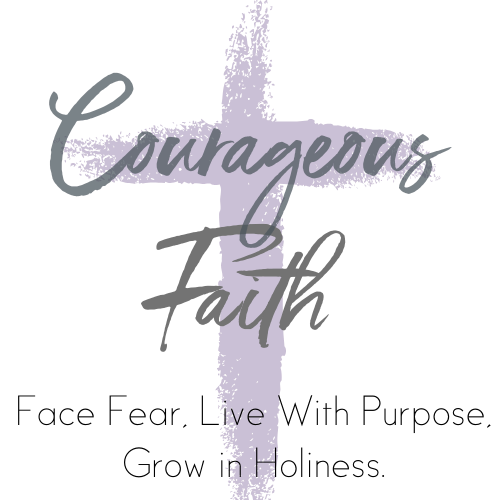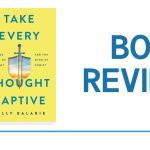
Do your emotions confuse you?
Do you constantly try and figure out if you’re sinning and wonder if you’re doing the right thing?
When I made the decision to change my life and face my fears, I struggled with my emotions because I still felt afraid. My goal was to erase fear from my life completely. You know—to be fearless!
The Lord began to show me it’s better not to judge my emotions as good or bad, right or wrong, and instead, evaluate my thoughts and behaviors influencing my feelings. I found verses in scripture showing me that even God, Jesus, and the Holy Spirit experienced negative emotions. Jesus never sinned, so his thoughts and behaviors were always healthy and appropriate for the situation.
The best way for me to discern if I’m sinning is to evaluate my thoughts and responses. Are my thoughts healthy or unhealthy? Am I trusting in God or being ruled by fear?
As I read books about fear and studied scripture, I recognized three different types of fear mentioned in the Bible. Distinguishing the difference between natural fear (which is meant to protect us from harm), the spirit of fear, and Godly fear helps me determine if my response to fear is healthy or unhealthy.
The Fight, Flight, or Freeze Response
God created us with the vital fight, flight, or freeze response in order to protect us from danger.
“The fight, flight, or freeze response refers to involuntary physiological changes that happen in the body and mind when a person feels threatened. This response exists to keep people safe, preparing them to face, escape, or hide from danger.”
Proverbs tells us a wise person hides from danger.

But more often than not, my fight or flight response was getting triggered unnecessarily. For example, whenever I had to drive on the freeway I felt like I was meeting my death.
According to the National Highway Traffic Safety Administration, 33,244 people were killed in vehicle crashes in 2019. Yikes! It sure sounds like a lot. The United States Census Bureau states that the population in 2019 was 328. 2 million. When you divide to find the percentage of the population that died in car accidents, it is only .0001 percent! Knowing this percentage helped me accurately perceive the amount of danger I was in when deciding to face my fear of driving on the freeway.
Asking myself if my fear is warranted for the situation, helps me evaluate when my response to fear is unhealthy.
Our bodies aren’t meant to live in a constant state of alert. When this happens, it’s turned into the next type of fear.
The Spirit of Fear
The opposite of walking in the power of the Holy Spirit is being controlled by the spirit of fear. When the natural human response to fear gets out of whack, the spirit of fear may take over. Here are some verses describing the spirit of fear.

Godly Fear

Fearing God dispels the spirit of fear! Share on X
The more I studied what it means to fear the Lord, the more I understood how fearing God is the best way to fight fear.
Have you ever wondered why God encourages us not to fear, then tells us to fear Him? Why did the appearance of God in the Bible, including angels, elicit an emotion of fear and sometimes terror in those who witnessed God’s presence?
During the transfiguration of Christ, when the glory of God was revealed to Peter, James, and John, the voice of God spoke through a cloud and said, “This is my Son, whom I love; with Him, I am well pleased. Listen to him!”
When the disciples heard this, they fell facedown to the ground, terrified. But Jesus came and touched them, “Get up,” he said. “Don’t be afraid.” When they looked up, they saw no one except Jesus.”
Their reaction to God’s glory and power was a natural response. However, Jesus didn’t want them to be afraid. He didn’t want the spirit of fear to overcome them.
Jesus touched the disciples and told them not to be afraid.

Last summer wildfires spread throughout part of California. Firefighters set back-burns to decrease the amount of fuel in the fire’s path. Controlled burns save homes and cities from wildfires.
Fire can be both destructive and helpful. It’s the same with our response to fear. Our response can either protect us from danger like a backburn or consume all the good things God meant for our lives.
Fearing the Lord sets a back-burn that not only clears away present fears but also tills the soil of your faith and helps you learn to trust God. Fearing God helps prevent the fight or flight response from setting accidental spot fires.
Just like firefighters fight fire with fire, we fight fear with the fear of God. Fear that leads to stronger faith and trust in Jesus through surrender reaps healthy benefits. Check out this post, The Amazing Benefits, and Blessings of Fearing God.
Fearing God Equals Trusting God
If I could sum up what I've learned about fearing God, it's that fearing God equals trusting in God. Share on X
Godly fear is a wholesome, healthy fear drawing us toward the Lord with humble submission to our Creator. Any fear response that causes us to lose trust in Jesus is unhealthy. If we want to learn how to trust in God, it starts with learning what it means to fear the Lord.
The fear of the Lord is the beginning of wisdom: and knowledge of the Holy One is understanding (Proverbs 9:10)
When we fear the Lord we trust in the sovereignty and power of God. We learn to let go of our own control and learn to trust in His. Share on X
One lesson I’ve learned as I’ve made efforts to face fear is that I have to be willing to put myself in situations where I’m going to be afraid in order to learn how not to be afraid.
When you take the next step, God takes it with you. The spirit of fear will try and take over even when you are walking in obedience to God. The truth is, sometimes it feels scary to trust God and walk in faith. God gives Christians the gift of the Holy Spirit to help us discern when the spirit of fear tries to push us off the path of trusting in God.
God knows and understands our fearful hearts and wants us to discover His trustworthiness and sovereignty over everything that happens in our life.
God empowers you to serve him, assures you of truth, and comforts you when you are anxious.
Getting Help
One healthy response to fear is to seek professional help.
According to the National Institute of Mental Health, 19 percent of American adults (over 40 million people) have experienced an anxiety disorder in the last year. An anxiety disorder is any fear or anxiety-based problem that becomes persistent and is severe enough to have a significant impact on your quality of life. A person can feel anxious without having an anxiety disorder (a medical diagnosis). Anxiety disorders include agoraphobia, generalized anxiety disorder, panic disorder, separation anxiety, social anxiety disorder, and specific phobias. Even though anxiety disorders are highly treatable, only 37 percent of people seek treatment.
Fearing the Lord lead me to seek knowledge and understanding about my mental and emotional health. This was part of God’s path for me in seeking wisdom to know how to face my fears when I was afraid. Our bodies are complicated. Treating mental health struggles on all fronts physical, mental, emotional, and spiritual, helps us become whole in Christ.
Check out these free verses to equip your mind to battle fear and my free ebook, Empowered.
I have so much to share about learning to trust in God when you’re afraid. If this topic interests you, sign up for the Courageous Faith email list to receive the latest posts in your email. I’ll be sharing separate posts describing in further detail each type of fear.
What has God been teaching you about fear?
In the comment section, would you share a time when you let yourself be afraid so that you could learn how to walk in faith through fear? Would you also share about a time when you allowed fear to reap unhealthy results in your life, such as unnecessary worry, anger, and stress?










 Hello there! I'm Valerie, a mom of four and wife of 27 years. My writing inspires others to cultivate courageous faith and find solace in trusting God, especially in moments of fear and uncertainty. Join me on this adventure as we explore the beauty of trusting God when we are afraid.
Hello there! I'm Valerie, a mom of four and wife of 27 years. My writing inspires others to cultivate courageous faith and find solace in trusting God, especially in moments of fear and uncertainty. Join me on this adventure as we explore the beauty of trusting God when we are afraid. 



